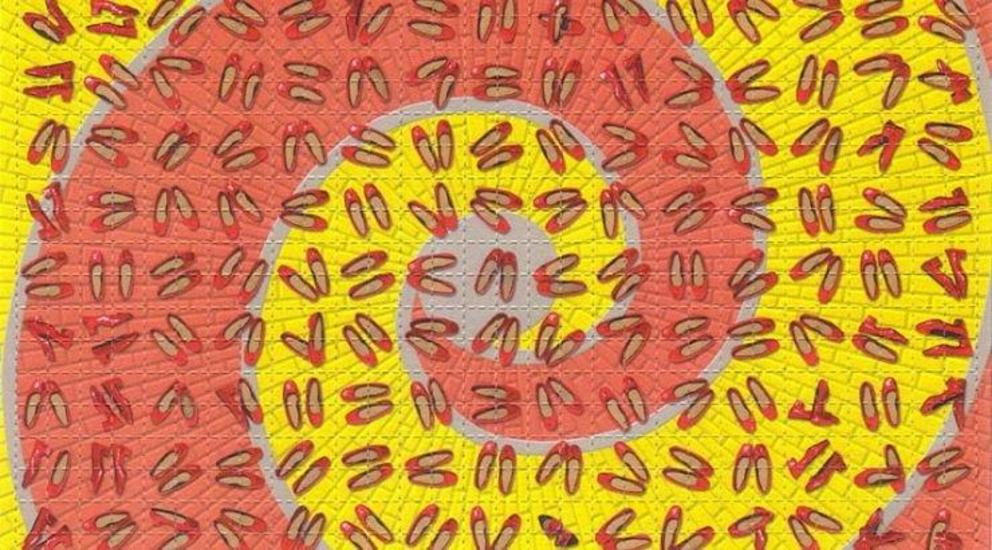Psychedelic drugs are finally being used to treat depression in US hospitals
Scientists and psychiatrists are embracing psychedelic drugs as “game-changers” in the fight to treat depression.
As the country increasingly sheds its prohibitionist stereotypes and misconceptions about psychedelic drugs, scientists and psychiatrists are increasingly embracing their potent qualities as “game-changers” in the fight to treat mental health disorders.
The new trend unfolding across the U.S. has converted drugs like ketamine—once known primarily as a recreational drug used at raves and underground concerts—into a powerful tool for mental health professionals in the Midwest, according to the Times of Northwest Indiana.
Dr. Joseph Fanelli, a psychiatrist who is the medical director for behavioral health services at St. Catherine Hospital in East Chicago, told the Times:
“It’s a pretty exciting time that we’ve entered over the last few years.”
Continuing, Fanelli noted that in the case of ketamine, researchers have found a drug that kicks in almost immediately versus the weeks that antidepressants take to make an impact. Ketamine treatment is “one of the most rapid, dramatic treatments we’ve had and been able to use in a long time,” he noted.
Ketamine is a strong sedative and dissociative that has been used in the veterinary and medical fields since the 1960s, but it has also been known as a club drug for nearly just as long. Numerous studies in the recent past have shown how ketamine can be a powerful treatment option for major depression. And in March, the Food and Drug Administration (FDA) announced the approval of a ketamine-based nasal spray for treating depression that was patented by Johnson & Johnson, as previously reported by the Mind Unleashed.
The drug, called esketamine, has a slight chemical variation from the original substance and must be administered in a doctor’s office under tight monitoring due to the potential for hallucinations. However, Fanelli noted that any such dose is far lower than the amount typically used on the streets.
Fanelli noted:
“The effect patients get when treated with it is rarely anything like a high …Patients might feel foggy-headed or lightheaded. The main thing we watch them for is to make sure they’re fully alert, not sedated.”
Many of the patients leave his office saying things like “Maybe I felt something, I don’t know,” due to the fact that “it’s not really a pronounced effect” despite esketamine’s potency as an antidepressant. The drug is being given in conjunction with oral antidepressants for those who felt their previous antidepressants no longer offered relief or whose effects wore off.
Fanelli added that the treatment’s length and intensity depends on the individual patient. He explained:
“Some people have a course of ketamine of two or three times a week for maybe two to four weeks, then they may be fine without the need for anything else … Some people have to have it continued, once a week or month; sometimes less often or more often.”
Dr. Danesh Alam, medical director of behavioral health for Northwestern Medicine Central DuPage Hospital in Illinois, said that ketamine could one day become a “first line of intervention” for suicidal patients. He noted:
“It’s going to probably change the way we practice psychiatry and medicine.”
Alam warned that despite the FDA’s approval for esketamine, government restrictions continue to make it difficult to research the psychiatric benefits of psychedelic drugs, along with marijuana, while other countries are able to conduct such research. He said:
“It’s hard to study (drugs) if you can’t do it with federal support.”
Indeed, a growing body of research has laid out the benefits of psychedelic drugs such as magic mushrooms. Recent studies have shown how a microdose of psilocybin—far from the level needed for a full-blown trip—actually increases the creativity and empathy of participants. Advocates note that psilocybin has also shown great promise in psychotherapeutic settings.
Alam sees the current moment as “a challenging and exciting time in our field: challenging because of how society is affected by the opioid crisis, the suicide crisis, and I’d add in the trauma crisis. The exciting part is new treatments may help us treat the disorders associated with all of these conditions.”

